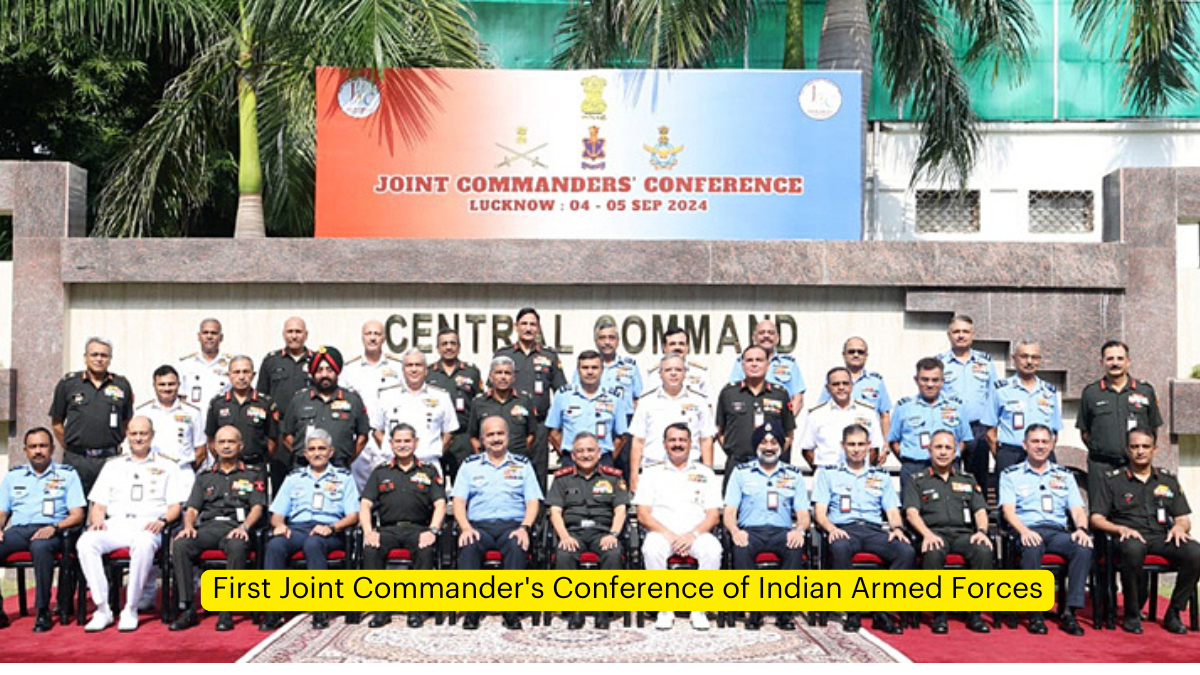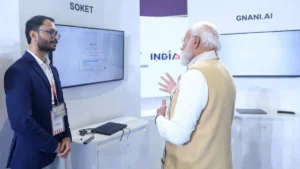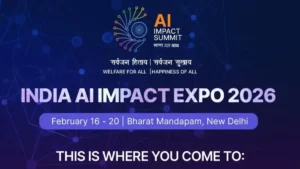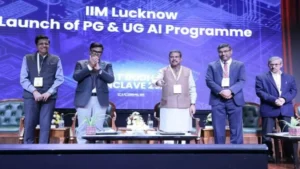On September 4-5, 2024, a significant event took place in the military landscape of India. The first Joint Commander’s Conference of the Armed Forces was held in Lucknow, Uttar Pradesh, marking a new era in the coordination and integration of India’s military forces. This two-day conference, presided over by Defence Minister Rajnath Singh, brought together top military brass to discuss crucial issues facing the armed forces and to strategize on the future of India’s defense capabilities.
Conference Overview
Venue and Date
The conference was held in Lucknow on September 4-5, 2024.
Key Attendees
The conference saw the participation of India’s top military leadership:
- General Anil Chauhan, Chief of Defence Staff
- General Upendra Dwivedi, Chief of the Army Staff
- Admiral Dinesh Kumar Tripathi, Chief of the Naval Staff
- Air Chief Marshal Vivek Ram Chaudhari, Chief of the Air Staff
- Giridhar Aramane, Defence Secretary
Theme
The conference was organized under the theme “Sashakt aur Surakshit Bharat: Transforming Armed Forces” (Strong and Secure India: Transforming Armed Forces). This theme underscores the Indian government’s commitment to strengthening and modernizing the country’s defense capabilities.
Key Focus Areas
The conference centered around several critical aspects of India’s military strategy and development:
1. Future Challenges and Capabilities
Discussions were held on current and future security challenges facing India. The focus was on developing strategies to enhance the future capabilities of the Indian armed forces to meet these challenges effectively.
2. Integrated Theatre Command Structure
A significant portion of the conference was dedicated to deliberating on the organizational structure for a joint and integrated theatre command. This concept aims to unify the operations of the three armed forces under a single command for more efficient and coordinated military actions.
3. Indigenous Technological Development
The conference emphasized the importance of:
- Pushing for indigenization in defense manufacturing
- Fostering indigenous technological developments
- Exploring advancements in robotics and Artificial Intelligence-enabled autonomous weapon systems
Understanding Integrated Theater Command
Concept
In military terms, a ‘theatre’ refers to a specific geographical area (air, land, or sea) that could potentially become a conflict zone. The concept of an Integrated Theater Command involves unifying the personnel and resources of the Indian Air Force, Indian Navy, and Indian Army under a single command structure.
Historical Context
The idea of integrated commands in India dates back to the recommendations of the 2015 Lt. Gen (Retd) DB Shekatkar committee, which suggested setting up an integrated tri-service command.
Current Status
Presently, India has only two integrated commands:
- Andaman and Nicobar Command
- Strategic Forces Command (responsible for the country’s nuclear arsenal)
Benefits
The implementation of Integrated Theater Commands is expected to:
- Enable more efficient use of military resources
- Enhance the war-fighting capacity of the Indian Armed Forces
- Improve coordination and synergy between different branches of the military
Additional Initiatives
During the conference, Defence Minister Rajnath Singh also launched several initiatives:
- e-Museum application: A digital platform showcasing military history and artifacts
- e-Granthalaya application: An electronic library system for military personnel
- Book launch: “Colonial Practices and the Armed Forces – A Review“




 PM Modi Unveils India AI Impact Expo 202...
PM Modi Unveils India AI Impact Expo 202...
 India To Hosts First-Ever Global South A...
India To Hosts First-Ever Global South A...
 Bharat Bodhan AI Conclave 2026 Kicks Off...
Bharat Bodhan AI Conclave 2026 Kicks Off...








